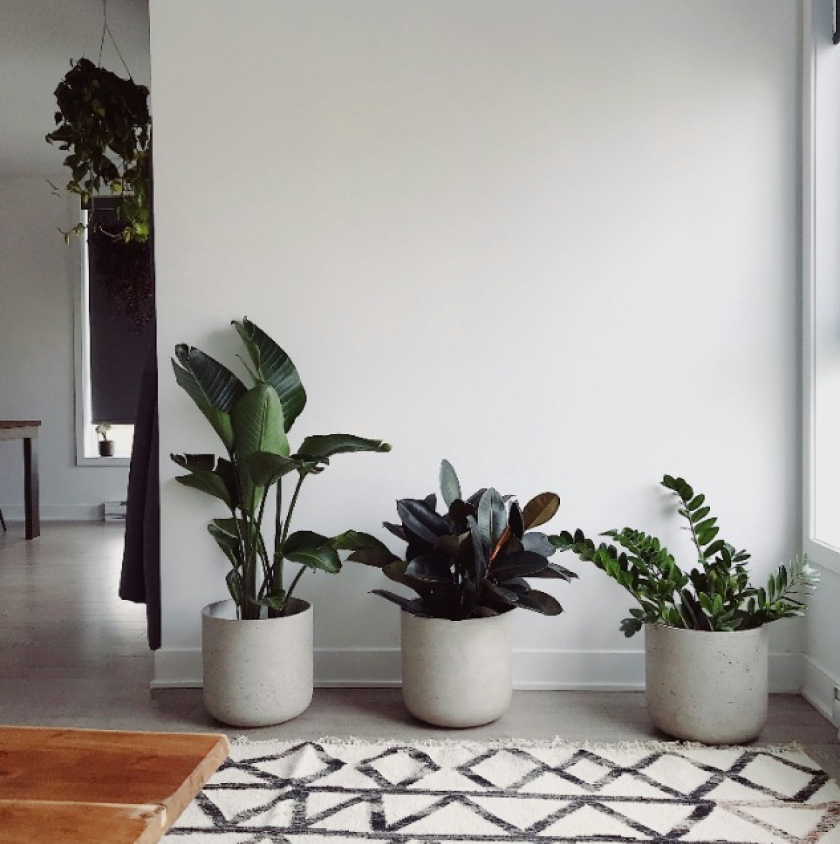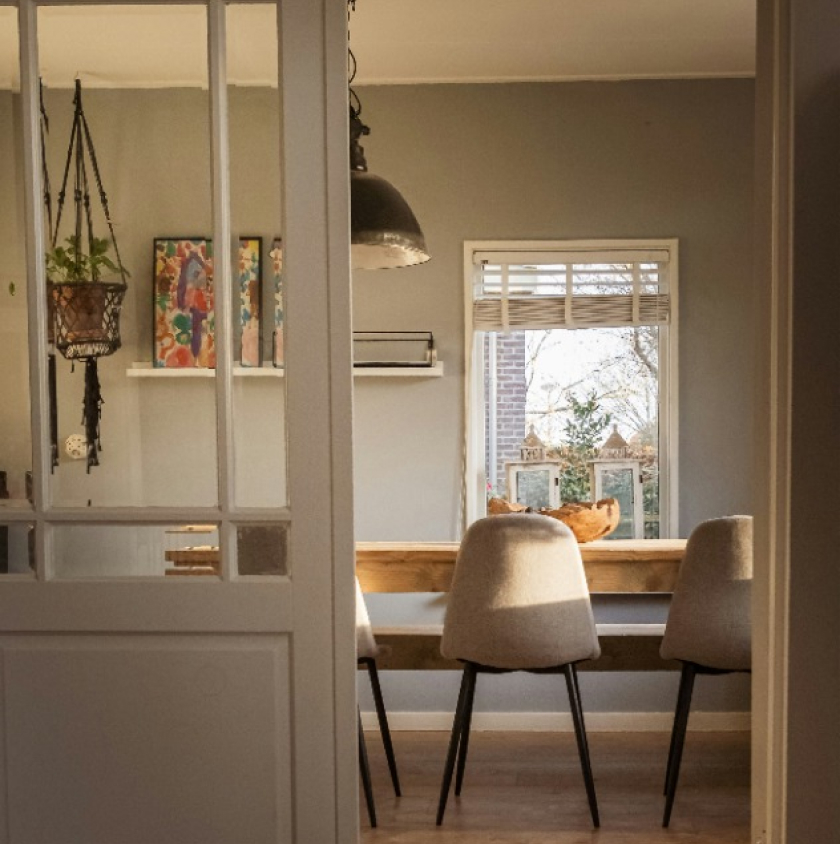
Home Insurance
Compare Cheap Home Insurance Quotes
- Compare up to 50 insurers
- Find a great deal today
- Protect your home and belongings

Compare cheap quotes from up to 50 UK home insurers, including;
Why Compare Home Insurance Quotes With EasyQuote
With EasyQuote, you can compare home insurance quotes from over 50 trusted insurers, anywhere, anytime. No queues, no admin, no fuss. Protect your home and belongings with just a click of a button.
How to get a home insurance quote?
- Fill in the form: Tell us more about your home contents, occupancy, and security.
- Choose policy add-ons: Add extra cover options for premium protection.
- Compare costs: Find a quote that fits your budget.
- Save money: Get the best deal tailored to your needs.

Who Needs Home Insurance?
Home insurance shouldn’t be thought of as a luxury expense, but rather an essential investment. If the worst happens to your home, you won’t be left financially vulnerable if you have a home insurance policy in place. If you are a homeowner, your cover will also protect you in case anything goes wrong after moving to a new home.
You should consider getting home insurance if you fall into any of these categories:
Tenant
If you are renting residential property, you’ll be glad to know that your landlord is responsible for taking out a buildings insurance policy. However, you might still want to protect your personal belongings against damage or theft with contents insurance.
Homeowner
As a homeowner, you are responsible for protecting your house and personal possessions residing inside it. Combined buildings and contents insurance is the best option if you are looking for more value for your money.
Landlord
If you are a landlord, it’s best to have your finger on the pulse when it comes to insurance cover. As the property owner, you are responsible for insuring the building. If you are renting out a furnished property, you are also responsible for protecting your personal possessions against damage and theft.
Student
As a student living in shared accommodation or a rented property, you might want to consider insuring your personal property. Consider asking your parents to include your property on their home insurance policy and be sure to read the fine print to stay mindful of any policy limits or restrictions.
Holiday property owner
If you own a holiday home or Airbnb, you’ll typically need to specify how many days a year your property will be occupied when taking out an insurance policy. This policy is referred to as host insurance and is reserved for homeowners who rent out residential property on a short-term basis.
Looking for the cheapest Home Insurance? Get your quote today!
Get QuotesWhat Does Home Insurance Cover?
What your home insurance covers will largely depend on your chosen policy and will also be subject to the rules and regulations of your insurance provider. However, there are some commonalities when it comes to the types of protection offered and general policy exclusions.
What are you generally protected against?
- Flooding and severe weather damage
- Fire and smoke damage
- Burst pipes and plumbing damage
- Vehicle, animal, or aircraft collisions
- Theft and vandalism
- Gas leaks
- Falling trees or branches
What are you generally not protected against?
- Wear and tear
- Standard maintenance
- Deliberate damage or negligence
- Storm damage to gates or hedges
- Frost damage
- Damage caused by pests or insects
- Boiler repairs or replacement

Which Type Of Home Insurance Cover Do I Need?
The level of home insurance cover you get will depend on what type of cover you need, the value of your home, and whether or not you have children. You should keep in mind that the more protection you require, the more costly your home insurance will be.
For instance, if your property and property contents are expensive, it will be costly to repair in case of extreme accidental damage. These facts are taken into consideration when calculating your monthly premiums.
We recommend getting both contents and buildings insurance if you want to protect your home and personal possessions against any type of threat. However, if you aren’t keen on getting both, it’s best to compare the advantages and disadvantages of your prospective contents and buildings insurance policies.
Contents Insurance
If you own any personal belongings that you would like to insure, then contents insurance is a must-have. This type of home insurance will protect your valuables against theft and accidental damage and will cover any repair or replacement cost if the worst were to happen.
What’s typically covered:
- Home furnishings: Sheets, carpets, curtains, cloths and cushions
- Furniture: Chairs, tables, drawers, and beds
- Electrical equipment: TVs, radios, consoles, PCs, and laptops
- Kitchen utensils and cutlery: Pans, pots, utensils, and cutlery
- Entertainment: Books, games, and music records
- And more: Ask your insurance provider for a detailed list of covered items
What’s typically not covered:
- Artwork: Sculptures and paintings
- Antiques: Could include antique ornaments, furniture, or artwork
- Bikes
- Personal items away from your home: For instance, when your mobile phone gets stolen at the supermarket
Be sure to check in with your insurance provider to establish what exactly your contents insurance policy covers. You may be able to negotiate more lenient terms or find an option that covers exactly what you need.
Buildings Insurance
Buildings insurance covers the cost of repairing the building structure of your house in case it gets accidentally damaged through an unforeseen event. If you are a homeowner, the terms and conditions of your mortgage contract may list buildings insurance as a requirement. However, it’s still a great idea to invest in buildings insurance even if you are not contractually obligated to do so.
Covered structures included in a buildings insurance plan:
- Walls: Internal and external
- Roof: Structural damage and damage to tiles, fittings and accessories
- Ceilings: Structural damage and ceiling replacement
- Doors: Structural damage as well as damaged locks
- Windows: Structural damage as well as damaged glass and window locks
- Floors: Carpets, tiles, and wooden floors
Some plans will cover certain external structures, such as your greenhouse or garage, but it’s not a given and will have to be confirmed with your home insurance provider.
Combined buildings and contents insurance
If you are about to purchase your first home or are currently a homeowner, it would be best to take out a home insurance policy that combines both buildings and contents insurance. This will provide solid protection against the elements, accidental damage, and theft. Additionally, it will ensure you have a financial fallback if you do need to cover any repair or rebuilding costs.
Advantages of a combined home insurance policy:
- Full protection: Covers the interior and exterior of your home.
- More affordable: It’s normally more affordable than buying buildings and contents insurance separately.
- Less admin: One policy equals less paperwork in case of repairs or replacements.
Looking for the cheapest Home Insurance? Get your quote today!
Get Quotes
Do I Need Specialist Home Insurance?
If you live in a listed building or leave your property unoccupied for long periods, a standard home insurance policy may not be the right fit for you. Depending on your situation, it might be beneficial to consider the following specialist home insurance options.
Listed building insurance
Listed building insurance covers buildings that have immense architectural or historical value. If you live in a listed building, you are probably aware of how costly repairs can be. This is because these buildings are commonly built with specialist materials that are expensive to replace and usually need expert tradespeople to oversee the repairs.
Unoccupied property insurance
Unoccupied property insurance covers your home if you won’t be there for more than 1 or 2 months at a time. This specialist cover is ideal if you have recently inherited a new home that you won’t be occupying, are going on an extended trip, or are moving to a new home.
Non-standard property insurance
If your property doesn’t conform to normal building standards, then non-standard property insurance might be for you. It will cover your home when built from scratch or if it has a thatched roof. You can also get this cover if you or someone who lives with you has a criminal record.
Temporary home insurance
If you won’t be home because of renovations or a planned holiday trip, it might be worth your while to get temporary home insurance. This policy is usually taken out when you won’t be home for short durations and if your standard home insurance policy doesn’t cover these types of situations.
Home Insurance Add-Ons To Consider
Although most combined contents and buildings insurance policies are quite comprehensive, some items aren’t included in standard policies and cost extra to insure.
Home emergency cover
Emergencies happen; the important thing is to be prepared for them. Whether you have to fix a burst pipe or repair a broken boiler, home emergency cover will ensure you get the help you need, when you need it most.
Normally, this type of cover is already included in a combined buildings and contents insurance policy. However, if you don’t have a combined policy, you can still add it to your current insurance plan.
What is typically covered:
- Plumbing issues
- Electrical failure
- Boiler breakdown
- Pest infestations
- Locksmith
Accidental damage cover
Accidental damage has a way of sneaking up on you when you least expect it. That’s why being financially prepared is the best way to go. Thankfully, with accidental damage cover, you will always be able to afford quick repairs or replacements when accidents strike.
One thing to keep in mind is that accidental damage cover usually doesn’t cover wear and tear. This is because it only covers once-off, unforeseen events that damage your home or your home contents.
Home insurance providers usually offer accidental damage cover as an optional extra to either your contents or buildings cover policy. But just to be safe, check your policy’s terms and conditions to get more clarity on the matter.
What is typically covered:
- Accidental damage cover + buildings insurance: Covers broken glass, doors, bathroom fittings, drains, pipes, cables, walls and ceilings.
- Accidental damage cover + contents insurance: Covers personal items in your home as well as within the borders of your property.
Personal belongings cover
Personal belongings or personal possessions cover protects items that you carry around with you every day or wear when going out. It’s usually included in contents insurance and will help you to replace or repair your personal items in case of theft or accidental damage.
Your insurance company will typically only cover your personal possessions up to a certain limit. Usually, the more you pay for your contents insurance, the more that limit will increase, so that’s something to consider when reviewing your home insurance options.
Remember to double-check what personal belongings are covered in your plan as policy inclusions differ between insurers.
What is typically covered:
- Wallets and handbags
- Mobile phones
- Clothing items
- Watches and fitness trackers
- Laptops and tablets
- Sports equipment
- Musical instruments
- Jewellery
- Cameras
- Cash
Alternative accommodation cover
If your house is accidentally damaged and in need of massive repairs, alternative accommodation cover comes in handy. This type of insurance covers the costs of living elsewhere while the repair work is underway.
Alternative accommodation insurance usually has policy limits in place that stipulate the maximum cover amount that your insurer will pay for your temporary living arrangements. Policy limits may be applied on a per-event basis or for the entire duration of your policy period.
The limit amount usually varies depending on your policy terms and conditions. Some policies won’t cover an extremely long stay, so compare quotes to find the best deal to ensure you are covered in full when you have to find another place to stay.
What is typically covered:
- Flooding
- Fire or smoke damage
- Storm damage
- Burst pipes
Legal expenses cover
Although liability cover is usually included as standard when taking out a home insurance policy, legal expenses cover is not.
The difference? Liability cover fronts the financial aid you’ll need in case someone sues you for accidental injury or damage caused by your property. Legal expenses cover protects you from high legal expenses when you need to defend a claim or take legal action against someone else.
Normally, legal expenses cover is only offered when you take out a landlord-specific insurance policy; however, if you want the highest level of protection, it is worth adding to your plan.
What legal fees are typically covered:
- Personal injury
- Boundary disputes
- Tax enquiries or investigation
- Legal defence
- Property protection
- Loss of salary
Bicycle off-property cover
If you are concerned about your bicycle getting damaged or stolen while not on your property, then bicycle cover is a great insurance add-on to consider.
Bicycle cover is sometimes included in your standard home insurance policy, but this is usually conditional to when it’s securely tied down to a stationary object, like a gate or fence.
A lot of the time insurance companies will only cover your bicycle if you’ve taken out a specialist insurance policy. In other words, it’s best to confirm if your bicycle is covered before deciding on additional cover.
Locks and keys cover
Locked out? Don’t fret. With this policy, you’ll be able to replace both lost or stolen keys and get new locks if necessary without having to worry about the financial repercussions. Locks and keys cover usually also fronts the cost of locksmith services up to a certain value.
How Much Does Home Insurance Cost?
The price of your policy will largely depend on your unique insurance needs, the size and value of your home, and your claims history. Your best course of action is to compare your current house insurance to prospective cover options and to be mindful of each quote’s inclusions and limits.
In the UK, the average home insurance policy prices per year are:
| Insurance Type | Average Annual Cost (£) |
|---|---|
| Contents Insurance | £67 |
| Buildings Insurance | £158 |
| Combined Buildings and Contents Insurance | £163 |

What Factors Affect The Cost Of Home Insurance?
You will typically have to pay a higher premium if your home runs a greater risk of getting damaged. Here are some of the factors that may affect how much your home insurance will cost:
- Home contents: The more valuable your home contents are, the higher your premiums will be.
- Previous claims: If you’ve never claimed before, you’ll be more likely to pay lower insurance premiums. In some cases, you can even be rewarded with a no-claims discount.
- Your living situation: Your marital status, children and pets are all factors that can affect the cost of your home insurance quote.
- Your lifestyle: Being away from your home a lot can have an impact on your home insurance costs.
Looking for the cheapest Home Insurance? Get your quote today!
Get QuotesHow To Save Money On House Insurance Costs
Here are some easy things you can do to help bring the price down on your annual home insurance costs.
Safety
Ensure your home is safe and secure by installing a burglar alarm and investing in high-quality door locks that meet the latest standards of the British Standards Institution.
Add-ons
Evaluate if every optional insurance item on your plan is truly necessary.
Building materials
If you are building your own house, be mindful of the building materials you use as non-typical building materials can be more costly to insure.
Risks
When buying a home, choose an area with lower crime rates and risks of flooding, as these factors can increase the cost of your home insurance.
Property age
When considering where to live, consider how old the property is. Older homes could have outdated electrical wiring and plumbing which are costly to replace and insure.
Combined policy
Taking out a combined contents and buildings insurance plan is usually cheaper than purchasing separate policies.
Annual payments
Try to pay your home insurance premiums annually as monthly instalments are usually more expensive due to admin fees.
Review your plan
Always review your existing insurance policy annually to ensure you are getting the most value for your money.
When Is The Best Time To Purchase Home Insurance Cover?
The best time to purchase home insurance cover would be three weeks before your current home insurance plan’s renewal date or three weeks before you move into a new residential property. You can typically save up to 20% on your home insurance policy if you don’t rush the process.
In some cases, insurance companies will even allow you to sign off on an insurance policy three months before your annual renewal date. The sooner you purchase home insurance, the better, and the more time you’ll have to compare quotes and choose the best deal.
Frequently Asked Questions
Home insurance covers your residence against all sorts of calamities and includes both buildings and contents insurance. Buildings insurance covers the bricks and mortar of your home in case of floods, fires, or any other disaster that damages your home’s structural integrity. Contents insurance covers the cost of replacing or repairing possessions in your home in case they get damaged, destroyed, or stolen.
Although home insurance isn’t legally required when renting a home, mortgage lenders often make it a contractual requirement to at least buy buildings insurance when purchasing a property. For complete financial protection and peace of mind, a combined policy, including buildings and contents insurance, is your best bet.
In short, yes. When taking out a home insurance policy, you’ll have to pay two kinds of excesses (compulsory and voluntary) if you were to claim. You can’t change the amount of your compulsory excess as it’s determined by your insurance provider. However, you can increase or decrease your voluntary excess. The higher your voluntary excess is, the more money you’ll save on your monthly premiums.
A great credit score indicates financial trustworthiness and will make it easier for you to get cheaper cover. A low credit score can increase your monthly premiums, and depending on your situation, your insurance company may also require you to pay your insurance premiums annually.







